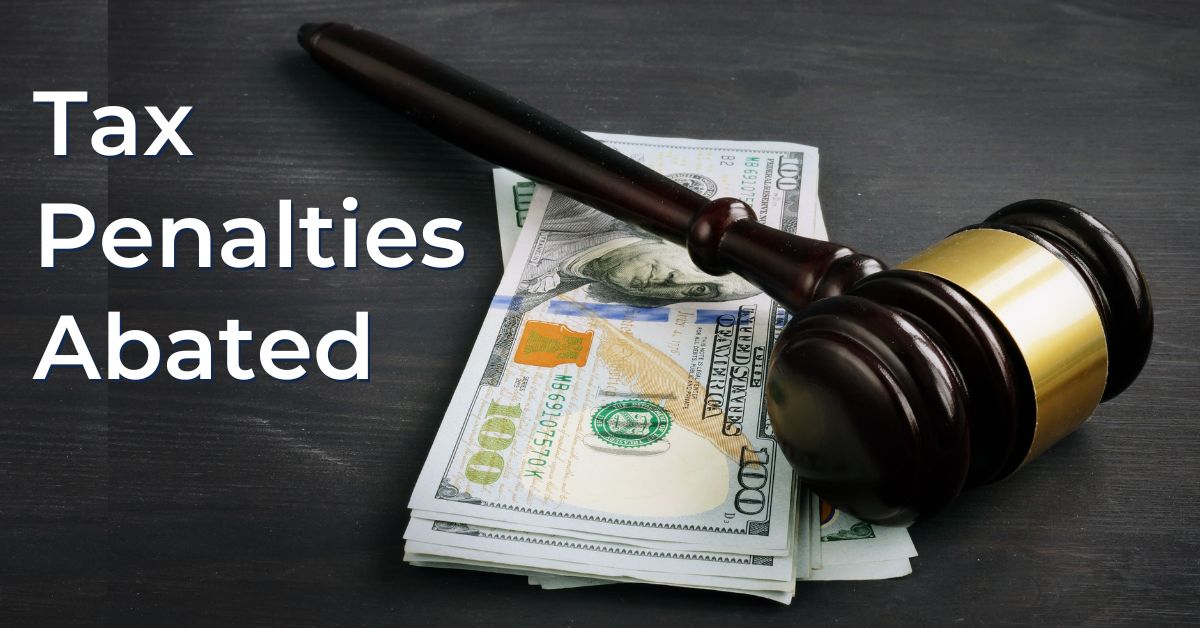
Entities that made late 4th-quarter estimated PTE tax payments received good news when IDOR announced the department would abate the late payment penalties for some filers. The department released a bulletin announcing the penalty abatement in August with details, including which payments qualify and how to calculate any remaining 4th-quarter penalties.
What is the Illinois PTE Tax?
The pass-through entity (PTE) tax is an income tax that certain partnerships and subchapter S corporations can elect to pay on behalf of their partners and shareholders. This tax is effective in Illinois starting for tax years after December 31, 2021, and before January 1, 2026. An entity making the election is subject to the 4.95% Illinois tax on its net income. The partners or shareholders of the PTE may claim a credit on their Illinois personal income tax return for their share of the PTE’s tax paid.
Why Elect to Pay the PTE Tax?
The 2017 Tax Cut and Jobs Act limited the itemized deduction on the individual federal tax return for state and local income tax (SALT) to $10,000 per year. This limitation negatively impacted many individual taxpayers, including those who receive income from pass-through entities. As a workaround for this deduction, states started allowing certain pass-through entities to pay tax at the entity level on behalf of their members. The tax paid by the entity is a deduction against the income from the business, allowing the entity to report less business income to its members, which may result in less income tax on their individual federal income tax returns if their SALT itemized deduction was limited. Since the tax paid is an entity-level deduction passed on to the members, the individual members still benefit from a state income tax deduction not limited by the $10,000 SALT cap. Additionally, non-itemizers can receive a state income tax deduction on their federal income tax returns that they otherwise were unable to deduct.
Required Estimated Tax Payments
Partnerships or S corporations electing to pay the PTE tax may need to make quarterly estimated tax payments. The estimated tax payments are required if the reasonably expected PTE tax and replacement tax due is greater than $500. The estimated payments must equal at least 90 percent of the current year’s tax liability or 100 percent of the prior year’s tax liability. The current year threshold applies if in the previous tax year, there was no tax liability reported or it was a short taxable year.
These estimated payments are generally due April 15, June 15, September 15, and December 15 in the applicable year for which the PTE tax is elected, with the payment due on the following business day if the due date is on a weekend or holiday. Illinois assesses late payment penalties if the entity does not pay the entire quarterly installment amount by the applicable due date. Payments are applied to the earliest due date until the entire estimated liability is paid unless the entity provides specific instructions to apply an amount to another period.
Shareholders or partners can claim a credit for the PTE tax paid against their individual income tax liability to the extent of their share of the PTE tax liability. If the PTE tax is overpaid, the entity should request a refund.
Abatement of Penalties
The Illinois Department of Revenue (IDOR) will abate late fourth quarter estimated tax penalties for the 2022 PTE tax if the entity paid their entire required fourth quarter payment on or before January 17, 2023. The department is assessing penalties on unpaid fourth-quarter amounts starting on January 18, 2023. IDOR announced this in a bulletin released in August 2023.
The IDOR bulletin highlights that payments will be applied first to any unpaid balances for the first three quarters of 2022, which may result in the fourth quarter being underpaid by some entities. Penalties will still apply to any remaining underpaid amounts if the fourth quarter estimated tax payment is insufficient to cover the estimated liability.
Taxpayers do not need to request the penalty abatement, as the department will automatically adjust their accounts. IDOR recommends that taxpayers let the department calculate penalties on their behalf and issue them a notice with the balance due. If taxpayers believe IDOR incorrectly assessed a penalty, they should contact the department to review their account.
Why This Matters
With the partnership and S corporation filing deadlines approaching, tax preparers should inform clients of this relief if the client had been anticipating paying a penalty. The automatic abatement of late estimated tax penalties will save some entities money, as the penalty could have been a significant amount in some cases. Entities that underpaid their fourth-quarter estimated payment should also benefit from a reduced penalty, as the penalty calculation will start on January 18, 2023, instead of December 16, 2022. This automatic penalty abatement is also helpful because requesting a first-time abatement is a process that does not always end in the taxpayer’s favor.
The announcement may also remind tax preparers to discuss making the PTE tax election with their clients for the current tax year. Tax preparers can find more information about the penalty relief announcement and the PTE tax election on IDOR’s website.
By Ashley Akin, CPA

Sources
IDOR Abates Late Estimated Payment Penalties for Filers Who Elected to Pay Pass-through Entity Tax
Pass-through Entity Information (Publication 129)
Illinois enacts pass-through entity tax election



